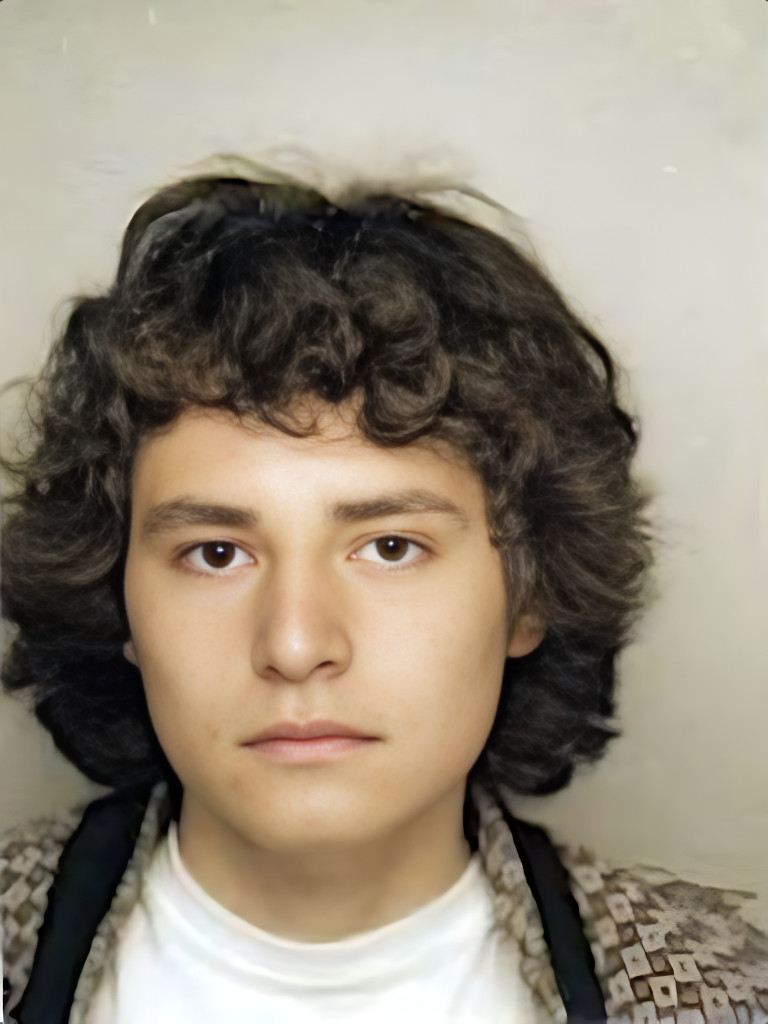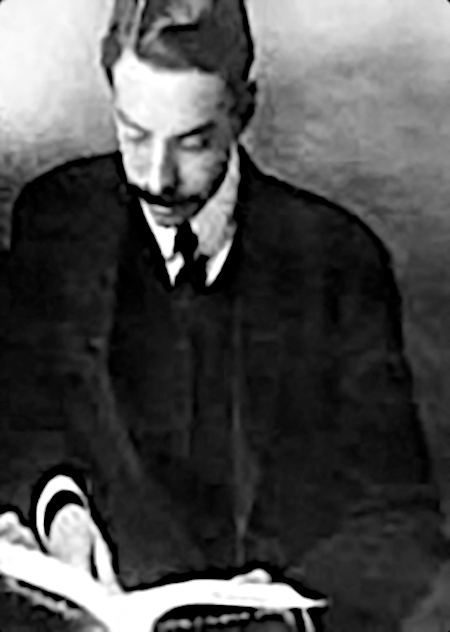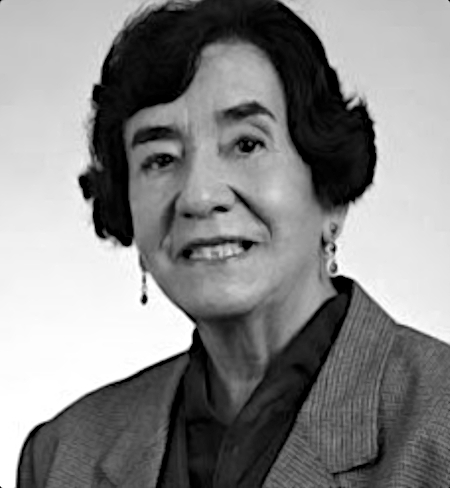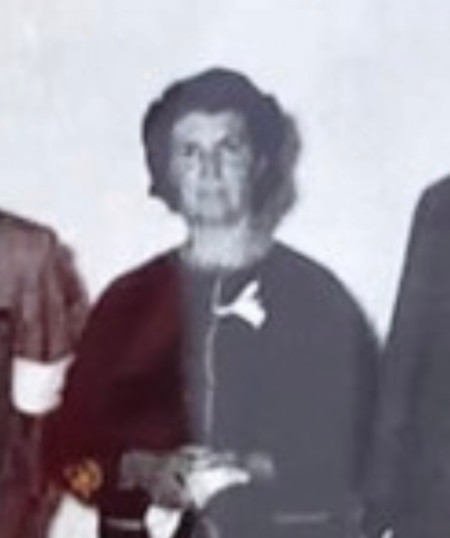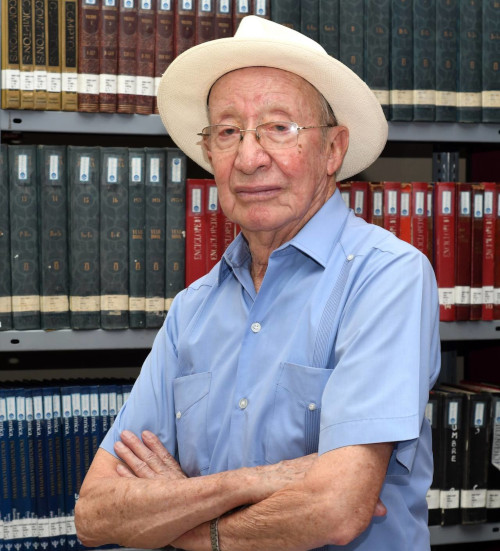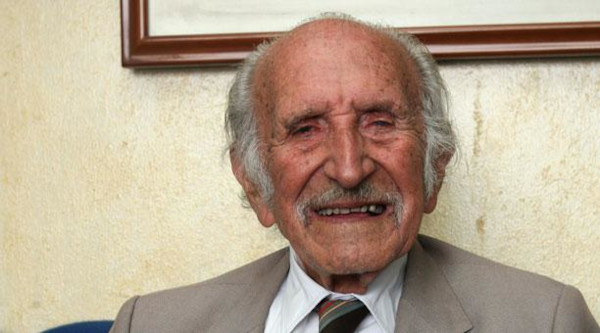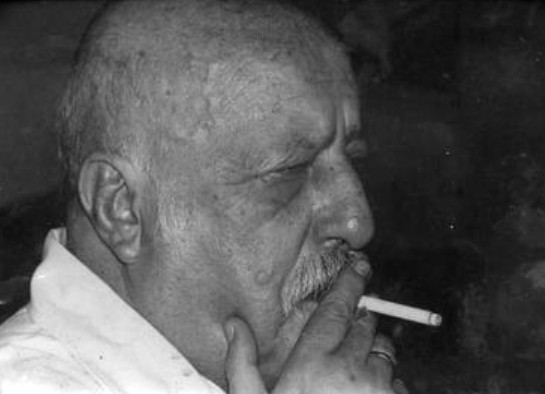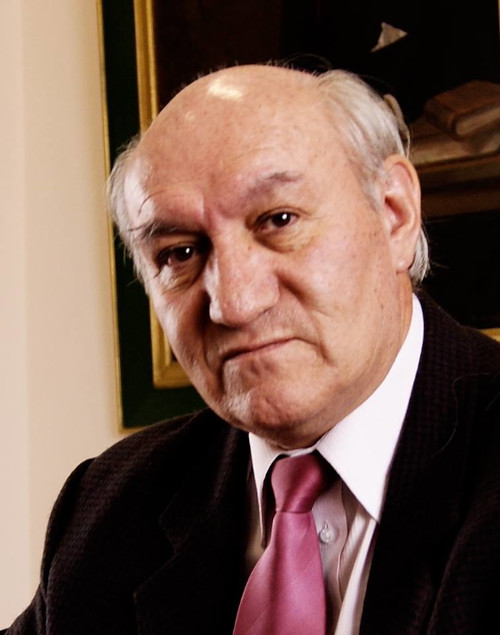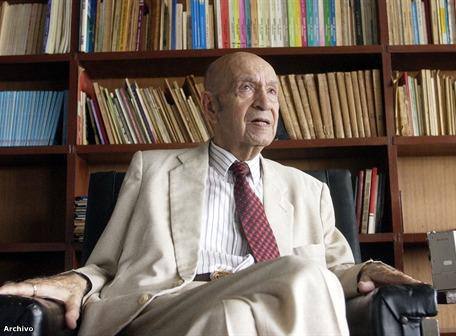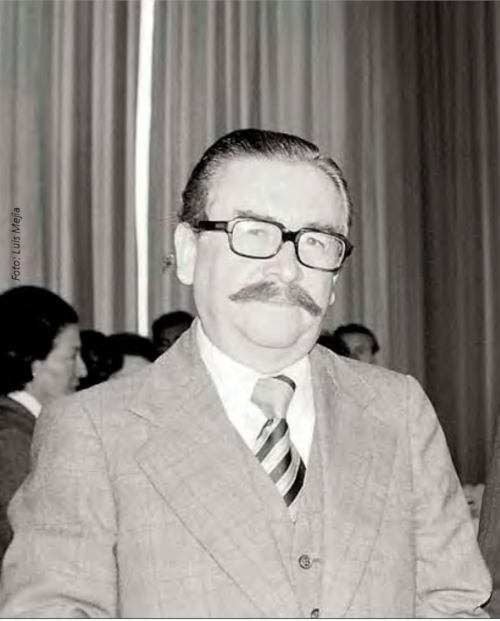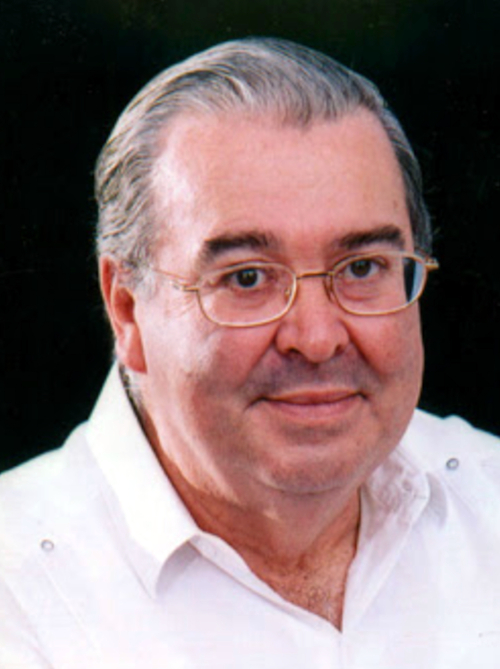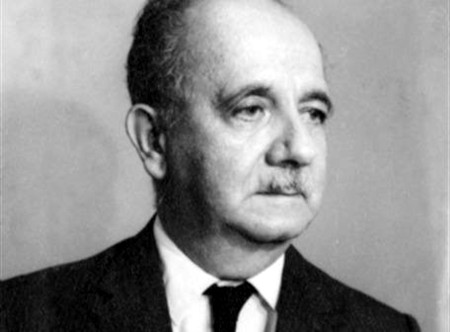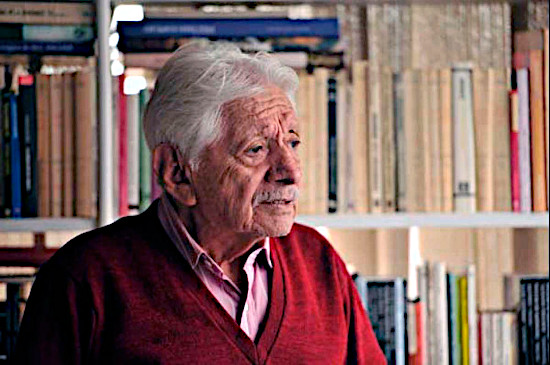Humberto Fierro Jarrín (Quito, June 17, 1890 – Quito, August 23, 1929) was an Ecuadorian poet of modernismo, a literary movement that took place primarily during the end of the nineteenth and early twentieth-century in the Spanish-speaking world. He was close friends with Arturo Borja, Ernesto Noboa, and other tormented poets of the early twentieth century who committed suicide and were thus dubbed the “Decapitated Generation.” This group was heavily influenced by Rubén Darío’s modernismo movement as well as 19th-century French romantic poetry. Fierro’s best known poems can be found in his poetry collections, “El laud en el valle,” published in 1919, and “La Velada Palatina,” published posthumously in 1949. He spent almost all of his working life as a clerk in a Public Ministry Office. He died at the age of 39 in 1929 from a mountain fall, which some believe was suicide.
Continue reading “Humberto Fierro”Category: 20th Century Writers
Oswaldo Calisto Rivera
Oswaldo Calisto Rivera, known by his pen name Cachibache, often spelled Cachivache (Quito, September 22, 1979 – October 10, 2000) was an Ecuadorian poet and painter who died of suicide at the age of 21. In 2001 Cachibache’s only book of poems “Rojo encanto de la marmota” was published posthumously by the House of Ecuadorian Culture in Quito. He also completed a yet unpublished poetic trilogy which consists of: “La cachiva,” “Comible Sr. Lucas Alombrey” and “La falta de pantuflismo.” Cachibache’s poems have been included in several anthologies, such as Memorias del primer festival de poesía joven Hugo Mayo (2005), 13 poetas ecuatorianos nacidos en los 70 (2008), and Premonición a las puertas (2012).
Continue reading “Oswaldo Calisto Rivera”Arturo Borja
Arturo Borja Pérez (Quito, Ecuador, September 15, 1892 – Quito, Ecuador, November 13, 1912) was an Ecuadorian poet associated with the “Generación decapitada” (Decapitated Generation), a group of young poets known for their tragic early deaths. Borja was the first of the group to adopt Modernist styles, drawing influence from French Symbolist poets like Baudelaire and Verlaine, whom he studied while in Paris seeking medical treatment. His poetic output, though limited, includes twenty-eight poems compiled in the posthumous collection La flauta de ónix (1920). Known for themes of melancholy and existential reflection, his work has made a lasting impact on Ecuadorian literature, marking him as a key figure in early 20th-century Ecuadorian poetry.
Continue reading “Arturo Borja”Fanny Carrión de Fierro
Fanny Carrión de Fierro (1936) is an Ecuadorian poet, literary critic, essayist and university professor. She is a 4-time winner of Ecuador’s Gabriela Mistral National Poetry Award. She has published essays on a variety of topics, including politics, culture, and society. Her poems have also appeared in English-language anthologies such as “These Are Not Sweet Girls: Poetry by Latin American Women” (1994) and “Eye to Eye-Women: Their Words and Worlds” (1997). She has taught at several universities in Ecuador and the United States. She is currently a professor at Ecuador’s Pontifical Catholic University (Quito). She has also been a visiting professor and Fulbright Scholar at Keene State College in New Hampshire, Willamette University in Oregon, and several other universities in Ecuador. Her work has been translated into English.
Family
Fanny Carrión de Fierro’s parents were Luis Enrique Carrión Carvajal and Leonor Acosta from Ibarra, Ecuador. Carrión de Fierro married Gustavo Adolfo Fierro Zevallos (Ph.D. in linguistics). They had four children: Gustavo Adolfo, Patricia Natalia, Luis Alberto and Pablo Fernando.
Education
She received a Doctorate in Literature from the Pontifical Catholic University of Ecuador (Quito, 1981), as well as a Master of Arts degree from the University of California at Berkeley, and a Bachelor’s degree (Licenciatura) in Education from the Central University of Ecuador.
She has been on the board of the Association of College Professors of the Pontifical Catholic University of Ecuador in Quito. She is also on the board on several development non-governmental organizations.
Member of
- “Grupo America” – an Ecuadorian literary group.
- Casa de la Cultura Ecuatoriana [Ecuadorian House of Culture], Literature Section.
Works
Poetry
- En la Voz del Silencio (1980)
- Ten poems translated into English included in the anthology These are not Sweet Girls, Poetry by Latin American Women, edited by Marjorie Agosin (1994)
- Where light was born: A personal anthology of selected poems by Fanny Carrión de Fierro (1999; translated by Sally Cheney Bell)
- Donde nació la Luz: Antología Personal (2000)
- Desde el beso del tiempo and Esta voz, in Poetic Voices without Borders, edited by Robert L. Girón (2005)
- Alfa Amor, Donde Nació la Luz and Geografía del Corazón, in Poetic Voices without Borders 2, edited by Robert L. Girón (2009)
- Ecuador, on erotic attraction, “Hidden Pleasure” in Eye to Eye-Women: Their Words and Worlds, edited by Vanessa Baird, introduction by Anita Desai (1997)
Short stories
- The Golden Ear of Corn and Other Stories, bilingual collection of short stories. Centro de Publicaciones de la Pontificia Universidad Católica del Ecuador, October 2010.
Criticism
- José de la Cuadra: Precursor del realismo mágico hispanoamericano (1993)
- Los Sangurimas, novela precursora de Cien Años de soledad, an essay about the novel “Los Sangurimas” by José de la Cuadra
- Cien Años de Soledad, Historia y Mito de lo Americano, in: Lectura de García Márquez (Doce Estudios), edited by Manuel Corrales Pascual (Quito: Centro de Publicaciones de la Pontifica Universidad Católica de Ecuador, 1975)
Awards
- Gabriela Mistral National Poetry Award (1958, 1961, 1981 and 1985)
- National Poetry Award of Ecuador (1962)
- “Juana de Ibarbuoru” Poetry Prize, Montevideo, Uruguay (1995).
Other writers with the last name Carrión
Fanny León Cordero
Fanny León Cordero (Gualaceo Canton, October 15, 1920) was an Ecuadorian jurist and poet. León was a member of the Association of Contemporary Writers of Ecuador, whose annual poetry contest is named after her. In 1947 León became Ecuador’s first female jurist, she worked as a judge for 31 years.
Continue reading “Fanny León Cordero”Rodrigo Pesántez Rodas
Rodrigo Abelardo Pesántez Rodas (Azogues, July 25, 1937 – Guayaquil, April 2, 2020) was an Ecuadorian writer, poet, literary critic, anthologist, researcher, university professor, and cultural promoter. He’s best known for his essays and for publishing poetry anthologies containing poems by Ecuadorians. He is especially remembered as an exponent and champion of Ecuadorian women writers. His book, “Presencia de la mujer ecuatoriana en la poesía” (1960), is a poetry anthology that contains poems by 67 Ecuadorian women writers. Other books by him include: “Panorama del ensayo ecuatoriano,” “Ocho poetas tanáticas,” “Jorge Carrera Andrade, amistad y anhelos compartidos,” and “Siete poetas del Ecuador.” As a poet, his poetry books include “Viñas de Orfeo,” “De cuerpo entero,”and “Vigilia de mi sombra.” Among the many awards he received are: the José Vasconcelos Award (an international award from Mexico) and the National Cultural Merit Medal from the House of Ecuadorian Culture. For forty years, he taught Ecuadorian Literature at the University of Guayaquil. He was a member of the House of Ecuadorian Culture.
Continue reading “Rodrigo Pesántez Rodas”Nicolás Kingman Riofrío
Nicolás Kingman Riofrío (Loja, November 18, 1918 – Quito, March 19, 2018) was an Ecuadorian writer, journalist and politician
Continue reading “Nicolás Kingman Riofrío”Francisco Tobar García
Francisco Tobar García (Quito, November 3, 1928 – Quito, February 1, 1997) was an Ecuadorian poet, playwright, novelist, essayist, journalist, literary critic, diplomat, and university professor. He earned a Ph.D. in Literature from the Pontifical Catholic University of Ecuador and held teaching positions at universities such as La Plata in Argentina, the Sorbonne in Paris, and Complutense in Madrid. He revitalized Ecuadorian theater with his plays and published several notable works of poetry and fiction, including Pares o nones and Autobiografía admirable de mi tía Eduviges, which critics consider his masterpiece. He also served as a diplomat in Spain, Haiti, and Venezuela.
Continue reading “Francisco Tobar García”J.D. Santibáñez
J.D. Santibáñez, born José Daniel Santibáñez (Guayaquil, 1959) is an Ecuadorian science fiction novelist and comic book writer. He studied Illustration at Parsons School of Design in New York. Santibáñez’s literary contributions include two notable novels: “Ejecútese el mañana” (2001; Execute Tomorrow), a thrilling blend of science fiction and noir set in the near future, and “El mago” (2003; The Magician), a captivating fusion of fantasy, supernatural elements, and action. Displaying his creative versatility, Santibáñez also delved into the realm of comic books, crafting the critically acclaimed “Cómic Book” (2008), a compilation of 27 enthralling graphic stories encompassing science fiction and crime. Alongside his remarkable artistic achievements, Santibáñez shares his knowledge and expertise as a professor at institutions such as the Escuela Superior Politécnica del Litoral (ESPOL), Universidad Santa María (USM), and Universidad de Especialidades Espíritu Santo (UEES). His written works, whether in prose or sequential art, enthrall readers with their fast-paced, darkly ironic, and immensely entertaining narratives populated by a diverse cast of characters, ranging from cowboys and time travelers to hitmen and apocalyptic monsters.
Continue reading “J.D. Santibáñez”Jorge Núñez Sánchez
Jorge Núñez Sánchez (Bolivar, February 6, 1947 – Quito, November 1, 2020) was an Ecuadorian writer, historian, and professor. He was the author of 56 books and co-author of 66 other books. He was a professor at the Central University of Ecuador and Treasurer of the National Academy of History. In 1992 he was appointed the director of the Department of History and Geography of the House of Ecuadorian Culture. In 2010 he was awarded the Eugenio Espejo Prize in Culture by the President of Ecuador.
Continue reading “Jorge Núñez Sánchez”Ángel Felicísimo Rojas
Ángel Felicísimo Rojas (Loja, December 20, 1909 – Guayaquil, July 20, 2003) was an Ecuadorian novelist and short story writer. His best known novel is El éxodo de Yangana (1949), which is one of Ecuador’s most important books. In 1948 Rojas published an influential book entitled The Ecuadorian Novel, which set the tone for literary criticism in the country for future decades. Rojas founded the Socialist Party of Loja in 1927. He was a passionate supporter of socialism, which led to his arrest and imprisonment by the Ecuadorian government in 1941. In 1997 Rojas was awarded the Eugenio Espejo Award in Literature.
Continue reading “Ángel Felicísimo Rojas”Galo René Pérez
Galo René Pérez (Quito, April 3, 1923 – June 18, 2008) was an Ecuadorian writer, poet, literary critic, biographer, and college professor. He held various posts in literary and cultural institutions of Ecuador. He was Secretary of Public Education during the government of the former President Galo Plaza, and served as Secretary General of the Council of Government. He was also President of the House of Ecuadorian Culture and Director of the Ecuadorian Academy of Language. He published 14 books in his career. His lectures, essays, articles, literary criticism have been collected and published for study abroad. His style, which is simple and elegant, has won him admirers the world over. He was the 2004 recipient of the “Premio Eugenio Espejo” Ecuador’s highest literary award.
Continue reading “Galo René Pérez”Rodolfo Pérez Pimentel
Rodolfo Pérez Pimentel (Guayaquil, November 2, 1939) is an Ecuadorian lawyer, historian, and biographer. He was declared the lifetime chronicler of the city of Guayaquil, and is a member of the National Academy of Ecuadorian History. Pérez Pimentel is the author of the Biographical Dictionary of Ecuador (Diccionario biográfico del Ecuador), which consists of about 1,600 biographies of nationals and foreigners who have been an integral part of Ecuador. In 2005, Pérez Pimentel won the Eugenio Espejo Prize in the literature category for his lifetime work as a biographer. Rodolfo Pérez Pimentel is a highly respected figure in Ecuadorian literary and historical circles, known for his dedication to research, his extensive publications, and his commitment to preserving the cultural heritage of Guayaquil and Ecuador as a whole.
Continue reading “Rodolfo Pérez Pimentel”Jorge Pérez Concha
Jorge Pérez Concha (Guayaquil, June 5, 1908 – Guayaquil, April 1, 1995) was an Ecuadorian historian, biographer, writer, and diplomat. He wrote biographies of Eloy Alfaro, Luis Vargas Torres, and his uncle Carlos Concha Torres, among others. In 1989 Pérez was awarded the Eugenio Espejo Award in Culture by the president of Ecuador.
Continue reading “Jorge Pérez Concha”Efraín Jara Idrovo
Efraín Jara Idrovo (Cuenca, 26 February 1926 – Cuenca, 8 April 2018) was an Ecuadorian writer and poet. Tragedy struck Idrovo in 1974, when his teenage son committed suicide. Idrovo expressed his sorrow in the form of a poem, “Weeping for Pedro Jara (structures for An Elegy),” which was published in 1978 and is considered one of Jara’s most important works. The Biographical Dictionary of Ecuador has called it “one of the greatest and most beautiful national poems ever written.” The poem is highly experimental, in that it was printed on a single 60cm by 70cm sheet of paper, divided into 15 sections, and can be read horizontally, vertically, or diagonally. He was president of the Azuay branch of the House of Ecuadorian Culture. In 1999, Jara was awarded the Eugenio Espejo Award, the nation’s highest literary honor.
Continue reading “Efraín Jara Idrovo”
